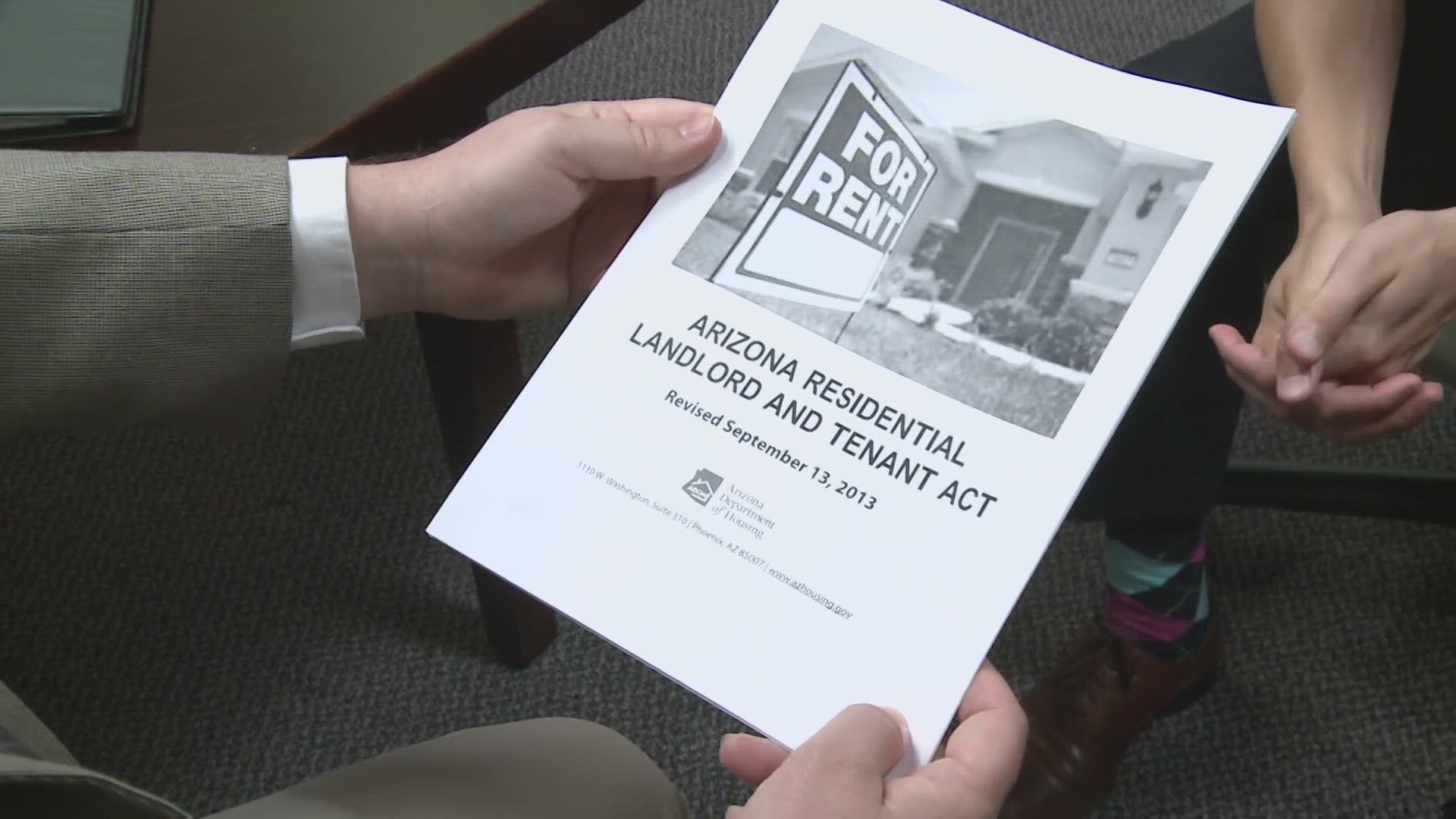PHOENIX — It's a nightmare for anyone living in Arizona during the hot summer months.
Air conditioning repair shops are getting hundreds of calls a day from people living in the Valley who either need their AC repaired or replaced entirely.
Josh Carmona who lives in North Phoenix is one of many in that unfortunate situation.
“Last night we were at like 102 degrees indoors,” Carmona said.
It was toward the end of June when he said his AC was starting to make weird noises. Then the next morning his family woke up to 90-degree heat inside the home.
“Our air conditioner had actually just stopped,” Carmona said.
It's been a week since this all started. Carmona and his family have been staying at hotels since then. He is currently waiting on his home warranty to come through with repairs but said they are still in the same situation.
“It’s just been a nightmare, it’s been horrible,” he said.
For homeowners who lose their air conditioning and have a home warranty, the process can take a while to either repair or replace the unit. The other option they have is to just fix the system themselves.
Carmona is now looking into that option but said the lowest estimate he received for his home is $12,000.
Precision Air and Plumbing out in Chandler sells and repairs AC units. General manager Rey Higuera said they get between 150 and 250 calls a day for service.
"My technicians are running anywhere from five to eight calls a day,” Higuera said.
AC units in the Valley can last between 10 to 12 years Higuera said. He added that it is imperative for people to stay on top of maintenance. The small cost for that could end up saving you thousands down the road.
For renters who lose AC, there are several options they can take.
HomeSmart Realtor Stephanie Kaufman said for tenants who find themselves in this situation, the first thing they need to do is write to their landlord or property manager to let them know what is happening. Kaufman said it's key that there is a timestamp somewhere on the written note, like in an email, that shows when the notice was sent.
“The Arizona Residential Landlord Tenant Act requires your landlord to provide reasonable access to cooling and the reason why you want to do it in writing is because you want to provide documentation that you contacted them. Then ideally you want to follow up with a phone call,” Kaufman said.
In the City of Phoenix, landlords are required to provide reasonable cooling for tenants.
The city's ordinance requires places with air conditioning units to cool to at least 82 degrees. Those with evaporative coolers to 86 degrees.
“It’s life-threatening heat so they have 24 hours to make the accommodation,” Stefanie Nader a program manager for Phoenix's Landlord Tenant Program.
Nader said those accommodations could be temporary hotel stays or even a portable AC unit that can bring down the temperature. However, Nader pointed out that the portable unit only has to cool down one room while the landlord fixes the situation.
When it comes to reimbursement, Nader said renters can ask for up to 125% of their daily rental rate. Meaning if your AC is out for an entire month and you pay $800 a month for rent, you will be reimbursed that $800 plus an additional $200.
However, Nader made it clear that people should not stop paying rent. He recommended tenants keep their receipts for hotels or portable coolers and then submit those invoices to landlords for reimbursement.
There is also the situation of no response from your landlord. When that happens both Kaufman and Nader said legal representation may need to be the next step.
Renters can also reach out to the City of Phoenix Landlords Tenant Program for assistance. While they do not offer legal advice, Nader said representatives can put people in contact with mediators who can assist.
Heat Beat
Here are several videos about Arizona's extreme heat and how you can stay safe during the state's summer months.

